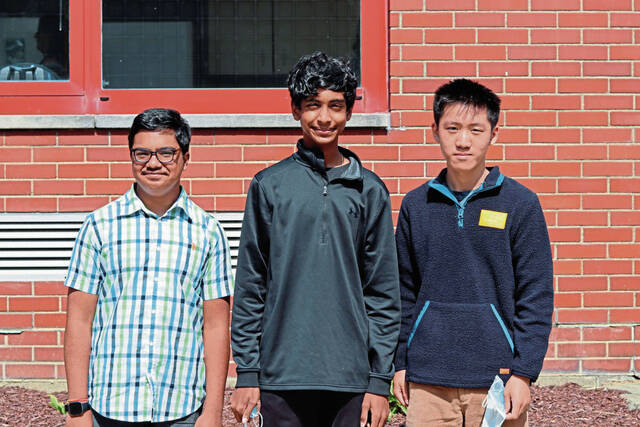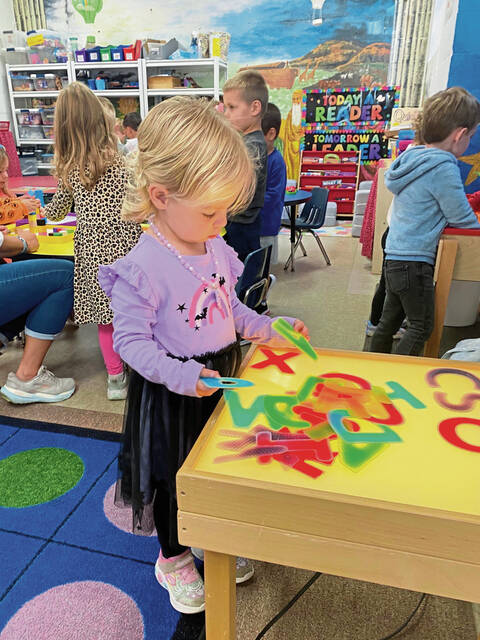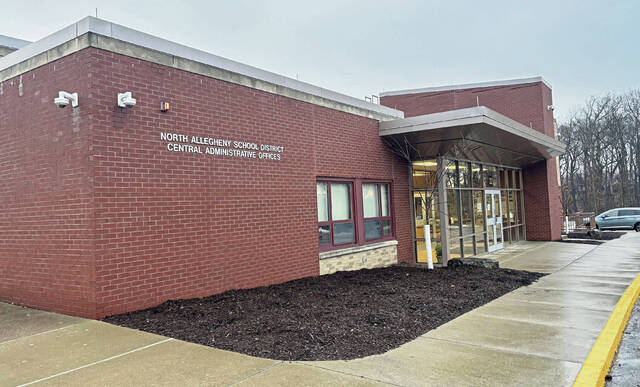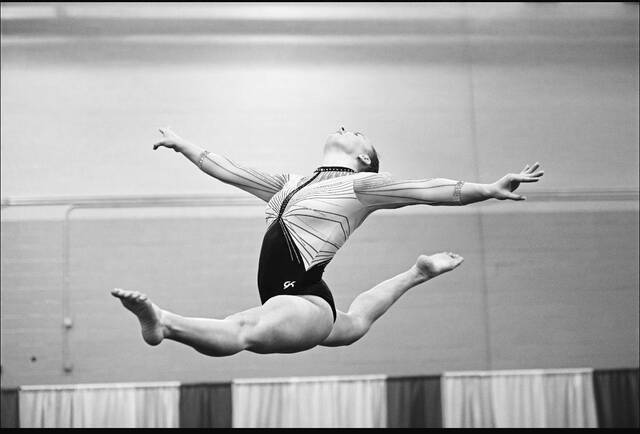Three freshmen at North Allegheny Intermediate High School placed in the Top 300 in a nationwide STEM competition, with two of them advancing to the top 30 finals.
The Broadcom Foundation and Society for Science 2022 Broadcom MASTERS, is a premier science, technology, engineering and math competition for middle school students.
Sritej Sai Padmanabhan, James Xiao and Shuchir Jain, all 14, were named to the Top 300 Masters. Padmanabhan and Xiao, who are in the top 30, will compete against other finalists this fall in Washington, D.C.
Out of the 30, Pennsylvania had the largest number of finalists at six, with two of them coming from North Allegheny.
There was a total pool of 1,807 applicants, according to the competition.
The NAI students qualified for the Broadcom MASTERS competition after placing in local contests, according to Keith Zielen, a math and computer science teacher at the school.
They each earned a first, second or third place in their respective categories at a previous Pittsburgh Regional Science and Engineering Fair, Zielen said.
The projects they entered in the Broadcom competition were completed during their eighth grade year at Marshall Middle School, Zielen said.
“As a math teacher, I know that it is not likely to have two of the top 30 and three of the top 300 projects at the same school. I think it speaks to the hard work that the students put into their projects. They are amazing young learners,” he said.
The top 30 students receive an expenses-paid trip to D.C. to present their projects in person.
Xiao’s project — “The Role of Gut Bacterial Metabolome in Colorectal Cancer” — had him working with four types of bacteria that other research had linked to risks for colorectal cancer. He grew them in separate solutions and spun the solutions in centrifuge. The bacterial cells separated and sunk to the bottom. The liquid at the top contained chemicals those cells had secreted. He found higher amounts of a chemical called ciliatine in the liquids that seemed to inhibit cancer cells.
Further work could help lead to new treatments for colorectal cancer, the second-leading cause of cancer death in the United States. In 2020, about 147,975 individuals were diagnosed with colorectal cancer and 53,200 died from this disease, said Xiao, of Franklin Park.
“I hope my project can make an impact by finding a new way to treat this disease and by improving the life quality of patients,” said Xiao who likes to swim and play chess, tennis and soccer.
“I am looking for a future in a career that will allow me to better the health of individual people and improve society. I would like to do this by making contributions via biotechnology innovation and by applying AI and machine learning in medicine and healthcare,” Xiao said.
Padmanabhan’s project — “Can Video Analysis of Hand Tremors Aid in Telehealth?” — developed a way to analyze hand tremors with smartphones, videos and a computer. The idea came after witnessing hand tremors in his grandfather who is suffering from Parkinson’s Disease.
“I hope to develop a breakthrough telehealth solution for diagnosing and monitoring neurological disorders such as Parkinson’s. Such a solution will address the access, cost and accuracy challenges that exist today,” he said.
Padmanabhan, of Franklin Park, hopes to become a neurologist to help find cures or treatments for people with disorders such as Parkinson’s and Alzheimer’s. He also hopes to apply his skills in robotics and computer vision towards this field.
For now, he enjoys robotics, golf, chess, flute and volunteering at senior care centers.
“I will be traveling to D.C .for finals week and I am nervous, but also excited to meet other finalists and looking forward to the experience. This is a great opportunity for me to showcase my project that is very close to me,” he said.
Jain’s project — “Effects of Music on Sleep Stages” — focused on understanding the effects of sleep music playlists available on several audio service platforms. This involved asking participants of various ages to wear a highly rated sleep-tracking smartwatch at bedtime for a week, first without and then with music playing from a Spotify-curated sleep playlist.
He analyzed sleep stages from the smartwatch’s log to see if the REM sleep stage — the sleep stage responsible for mood and critical thinking — was better with music or not.
Jain, of Marshall Township, likes to listen to music. He also enjoys programming, including combining programming with physical devices and components to experiment with cause-and-effect relationships.
The top 30 finalists each received a $500 cash award. The final competition in D.C. has a combined $100,000 in prizes, as well as several other award opportunities, according to the Society for Science website.








